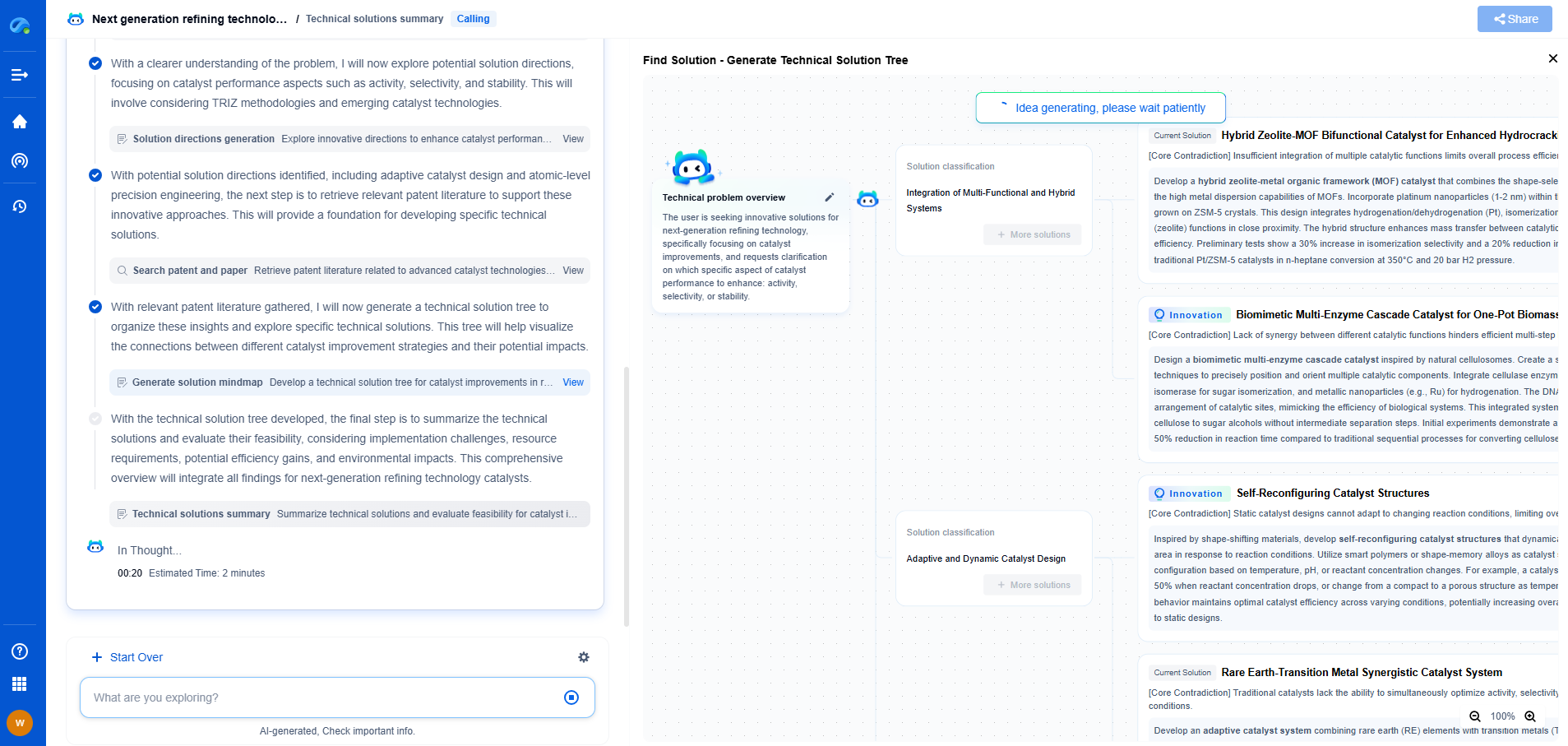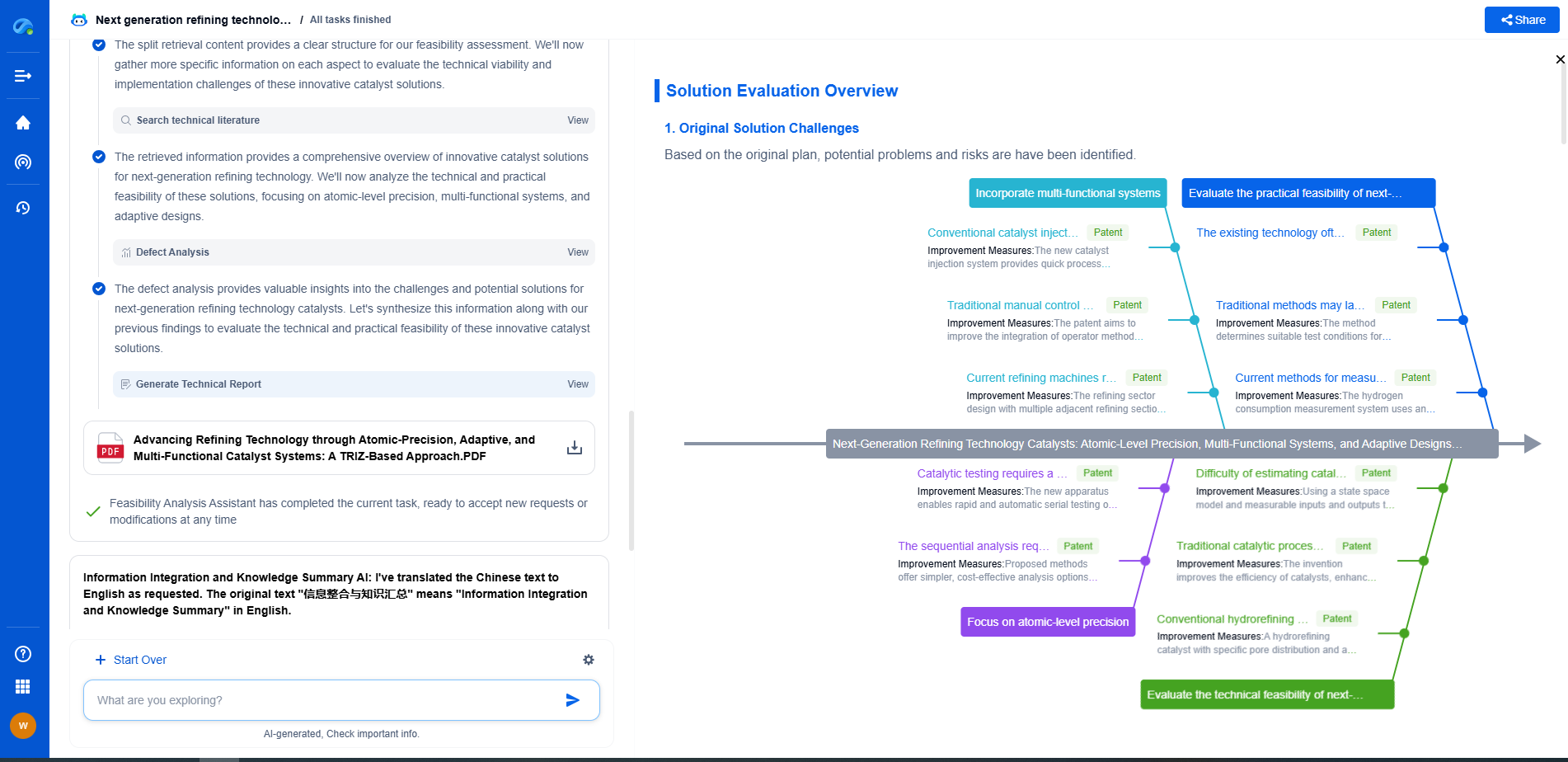What Is UL 61730 and Why Does It Matter for PV Module Safety?
JUL 22, 2025 |
UL 61730 is a set of safety standards that have become increasingly important in the photovoltaic (PV) industry. These standards focus on the safety of PV modules, ensuring they are safe to use and perform reliably under various environmental conditions. UL 61730 is crucial for manufacturers, installers, and end-users, as it provides a comprehensive framework for evaluating the safety and quality of PV modules.
What Is UL 61730?
UL 61730 is a safety standard developed by Underwriters Laboratories (UL), an organization renowned for its work in safety science. This specific standard addresses the safety and performance of photovoltaic modules, providing requirements for their construction, testing, and certification. The standard covers both the electrical and mechanical aspects of PV modules, aiming to minimize risks associated with their use, such as electrical shock, fire, and mechanical failure.
The standard is divided into two parts:
1. UL 61730-1: This part focuses on the construction requirements for PV modules. It provides guidelines for the design and manufacturing processes to ensure that the modules are robust and can withstand various environmental conditions.
2. UL 61730-2: This part outlines the testing requirements. It specifies the tests that modules must undergo to demonstrate that they meet the safety and performance criteria. These tests include thermal cycling, humidity freeze, damp heat, and mechanical load tests, among others.
Importance of UL 61730 for PV Module Safety
The primary purpose of UL 61730 is to enhance the safety of PV modules. By adhering to these standards, manufacturers can ensure their products are reliable and safe for users. This is crucial because PV modules are often installed outdoors, exposed to diverse weather conditions, and connected to electrical systems that can pose significant risks if not properly managed.
Compliance with UL 61730 is essential for several reasons:
1. Risk Reduction: By following the guidelines set forth in UL 61730, manufacturers can significantly reduce the risks associated with PV module failures. This includes minimizing the chances of electrical shocks, fires, and mechanical breakdowns.
2. Quality Assurance: UL 61730 serves as a benchmark for quality in the PV industry. Modules that meet these standards are often perceived as more reliable and trustworthy by consumers, which can enhance a manufacturer’s reputation and competitiveness in the market.
3. Regulatory Requirements: In many regions, compliance with UL 61730 is a legal requirement. Meeting these standards can facilitate market entry and ensure that products meet local safety regulations.
4. Consumer Confidence: Safety is a paramount concern for consumers, and UL 61730 provides assurances that PV modules have been rigorously tested and evaluated. This builds trust and confidence among end-users, encouraging broader adoption of solar technology.
The Testing Process
The testing process outlined in UL 61730 is rigorous and comprehensive, designed to evaluate the performance of PV modules under various conditions. Manufacturers must submit their products for testing by accredited laboratories to ensure they meet the necessary safety standards.
Key tests include:
- Thermal Cycling Test: This test evaluates the module’s ability to withstand temperature fluctuations, ensuring that the materials and construction can endure the stresses caused by thermal expansion and contraction.
- Humidity Freeze Test: This test assesses the module’s resistance to moisture and freezing temperatures, which is crucial for modules installed in regions with cold and humid climates.
- Damp Heat Test: This long-term test evaluates the module’s performance under high temperature and humidity conditions, ensuring it can withstand prolonged exposure to such environments.
- Mechanical Load Test: This test simulates the mechanical loads that a module may experience during its lifespan, such as wind, snow, and ice loads, ensuring the module’s structural integrity.
Conclusion
UL 61730 is an essential standard for ensuring the safety and reliability of PV modules. By providing guidelines for construction, testing, and certification, it helps manufacturers produce high-quality products that meet the demands of various environmental conditions while minimizing risks to users. For consumers and industry professionals alike, understanding and adhering to UL 61730 is crucial for promoting safety, enhancing quality, and fostering confidence in solar technology. As the demand for renewable energy continues to grow, UL 61730 will remain a vital component in the advancement and acceptance of photovoltaic systems worldwide.
As solar technology races ahead—from perovskite cells to tandem architectures, from anti-reflective coatings to transparent electrodes—staying on top of fast-moving innovation has become a strategic imperative.
Patsnap Eureka, our intelligent AI assistant built for R&D professionals in high-tech sectors, empowers you with real-time expert-level analysis, technology roadmap exploration, and strategic mapping of core patents—all within a seamless, user-friendly interface.
⚡ Ready to accelerate your solar innovation journey? Try Patsnap Eureka today and let AI help you harness the full power of the sun—and your IP strategy.
- R&D
- Intellectual Property
- Life Sciences
- Materials
- Tech Scout
- Unparalleled Data Quality
- Higher Quality Content
- 60% Fewer Hallucinations
Browse by: Latest US Patents, China's latest patents, Technical Efficacy Thesaurus, Application Domain, Technology Topic, Popular Technical Reports.
© 2025 PatSnap. All rights reserved.Legal|Privacy policy|Modern Slavery Act Transparency Statement|Sitemap|About US| Contact US: help@patsnap.com

